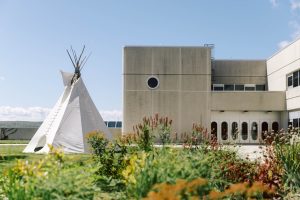Work Experience Procedures
All work experiences require faculty or the Academic’s chair approval before students can begin a work term. For those students that are seeking their own opportunities, you should advise them to provide you with a job description that you can review prior to them engaging in the application process or accepting a job offer.
Preparing for Work Experience
Students aiming to undertake their work experience with Nova Scotia Health (NSH) or IWK are required to initiate placements via the Professional Practice Portal known as HSPNet. Further details about this process can be acquired by contacting HSPnet@nscc.ca
Certain employers might mandate that students provide Criminal Record Checks (CRC), Vulnerable Sector Searches (VSS), Vaccination/Immunization Records, and/or Child Abuse Register Checks prior to searching a work experience opportunity. Adverse findings in these checks could potentially hinder a student’s ability to complete a work experience and fulfill all program requirements. To understand the processes and access relevant forms for Immunization, CRC, and VSS, it is advised to consult your Academic Chair or School Manager.
For guidance pertaining to International Work Experiences outside of Canada or supporting International Students within Canada, please refer to the dedicated International sections within this guide.
Co-operative Education
Students engaging in Co-operative Education are required to register for the co-op course. Co-op holds the status of an academic course, and consequently, tuition fees are applicable during the co-op term. Students interested in participating in the optional Co-op Program, MUST be referred to the Work-Integrated and Experiential Learning Coordinator. Should you come across a student interested in participation in optional co-op, please refer them to email WorkExperience@nscc.ca to register. Our dedicated Career and Employment team will provide them with guidance throughout the process and support them during their co-op journey. A pre-recorded information session on co-op can be viewed here.
For employers seeking to apply for the Cooperative Education Incentive through Labour, Skills, and Immigration (Labour and Advanced Education) it’s imperative that they receive endorsement from Career & Employment Services before submitting their application. In the event an employer contacts you regarding this funding, please direct them to Career & Employment Services.
Brightspace
The Career & Employment Services team has created a Brightspace shell that’s at your disposal for copying and customization to align with your specific requirements. This shell is structured into three units: “Preparing for your Work Experience”, “During your Work Experience”, and “Following your Work Experience”. Within each unit, students can access clear expectations, submit necessary forms as assignments, and engage in discussion topics that serve as their reflective learning components for evaluation. To obtain a copy of this course shell, you can initiate the process by submitting a request through the Technology Service Desk. Request a copy of the “Master Work Experience-MASTER_WIL_Dept.
Additionally, Career & Employment Services has designed a self-registration Brightspace course named ESSS1020 Career Jump Start, which is open to anyone at NSCC. This course is non-credit and self-directed, guiding learners through modules encompassing career decision-making, job search strategies, application processes, and job maintenance techniques. While primarily crafted for students, the course contains resources that faculty can integrated into their own courses or recommend to students if desired. To access this course, go to the Self-Registration widget on the Brightspace home page and click “Please click here to register“. The course can be searched for from the courses displayed.
Finding Work Experiences
Depending on the program, students may either independently seek out a work experience or have one assigned to them. Please ensure that you inform your students about the specific approach available to them. It is of upmost importance that all work experiences not only offers valuable learning opportunities but also ensures a safe environment for our students. Consequently, all work experiences must be approved either by faculty or the Academic chair before the student begins.
Self-Directed Searches
Students completing self-directed searches for work experiences must communicate with their faculty; and you must approve the work experience before the student accepts the offer of employment. The following criteria is considered when approving a work experience position:
- An optimal degree of relevancy exists between the work experience and the program of study
- The employer agrees to fulfill their responsibilities as outlined in the Employer Guide
- The work site upholds an adequate level of safety standards
To assist students with their work experience searches, students have been instructed to connect with you or their student services advisor for guidance and support.
Student & Graduate Employment Site
Many employers post their work experience opportunities on NSCC’s Student & Graduate Employment Site.

Interviews
Students will receive interview preparation assistance, which can be delivered through their communications coursed led by faculty. Alternatively, they can utilized the resources from NSCC Libraries, Career & Employment Services, and their campus Student & Career Services team to enhance their interview readiness.
InterviewPrep is an online mock-interview platform available to students. This platform offers an array of resources for interview preparation, including the opportunity to practice responding to over 5000 interview questions and receive feedback on their interview skills. It’s advised that students conduct research on the company they have an upcoming interview with. Additionally, students should ensure that their portfolios are up-to-date and prepared for presentation during the interview.
Not all students may be selected for interviews, as employers could screen and shortlist applications. In case of selection, the employer may directly contact the student to arrange the interview, or they may coordinate with you to schedule the student’s interview. Interviews will be organized at a time that accommodates both the employer and the student. Should a student miss a scheduled interview, it might necessitate them writing a letter of a apology to the employer for their absence.
Approving Work Experiences
The following criteria should be considered when approving a work experience:
- Work experience responsibilities align with the learning outcomes of the program
- The employer agrees to fulfill their responsibilities as outlined in the Employer Guide
- An acceptable standard of safety is maintained at the work site (see Health & Safety for more detail)
- An optimum degree of relevancy exists between the work experience and the program of study
- Professional conduct is demonstrated by both the employer and on-site supervisor of the student
Work Experience Job Offers
Employers have the option to reach out to the faculty, or directly to the student to extend a work experience job offer. It is imperative that the student promptly informs you of any received offers and concludes all arrangements before accepting the offer. Your approval, along with that of your Academic Chair, is mandatory for all work experiences.
The student is required to respond to the employer’s offer within 3 business days. In situations where a student deems an offer unsuitable, the following guidelines should be observed:
- If a student is contemplating rejecting a work experience offer, they must first discuss their decision with you before communicating with the employer. Declining an offer without a valid reason could result in the student being excluded from future job competitions or even being withdrawn from the program.
- Students must refrain from tentatively accepting an offer while awaiting news about another position. This practice might raise concerns among employers regarding the responsibility and maturity of NSCC students and potentially lead to employers reconsidering their participation in the program.
Work integrated Learning Agreement Form and Affiliation Agreements
Work Integrated Learning Agreements undergo annual review by NSCC’s legal counsel to ensure the incorporation of necessary information for promoting effective risk management practices while also explicitly delineating the liability responsibilities of all parties involved. Although simplicity of language is preferred, it’s crucial to acknowledge that these agreements prioritize safety and responsibility, necessitating the inclusion of legal terminology that remains unalterable. Refer to the Health & Safety section of this document for more comprehensive details.
The Work Integrated Learning Agreement Form pertains to individual work experiences involving one student at one employer for a single work experience within one academic year. Affiliation Agreements are intended for scenarios involving multiple, recurrent experiences. These encompass situations where multiple students engage with a single employer, potentially spanning across numerous work experiences and academic years. An Affiliation Agreement would not be used for an employer who hires multiple students for a single semester.
If you have an established partnership with an industry collaborator that consistently hosts students from your program year after year, work with your Academic Chair to establish an Affiliation Agreement. This approach would help streamline processes and reduce repetitive information collection for situations involving recurring interactions with industry partners.
Tracking Work Experiences
Faculty members are responsible for monitoring all work experiences through NSCC’s dedicated Work Experience Portal (WEP) This portal serves as a centralized repository for recording and monitoring all work experiences, ensuring easy access through a searchable catalogue. The Work Experience Portal encompasses a range of essential information, including the students’ personal details (Name, Email, Phone Number, Emergency Contact, Gender, Language, Citizenship), industry partner information (Company Name and Contact Information), and specific work experience particulars (Start Date, End Date, Hours, Wage if applicable, etc.)
As of 2022, the Work Experience Portal has been enhanced to accommodate additional functionalities. This includes the ability to store copies of Affiliation Agreements, enabling you to ascertain whether an agreement is already in place. Furthermore, copies of Accident/Incident Reports can be stored in the portal, aiding your evaluation of whether an industry partner is a secure and reputable choice for future student work experience. Instructions for uploading these documents are available in the portals training materials and resources, accessible on Connect here.
NSCC places a strong emphasis on controlling the collection, use and disclosure of information shared by students and industry partners. The institution is committed to the principles of informed consent and supports the right of industry partners to be informed about the information stored about them. If any questions arise regarding privacy or data utilization, please feel free to reach out to Career & Employment services at WorkExpeirence@nscc.ca.
It is important to note that currently five health programs (Practical Nursing, Medical Laboratory Technology, Occupational Therapy/Physical Therapy Assistant, Health Information Management and Medical Office Administration) are exclusively tracked through NSCC’s Professional Practice Portal (HSPNet)
During the Work Experience

Check-ins/Site Visits
As the College perceives work experiences as a seamless continuation of campus studies, it’s crucial to uphold a strong connection between the two. To ensure this connection, it is required that at least one check-in or site visit is scheduled for each work experience. For co-op and internship placements, we have established a minimum requirement of two site visits or check-ins.
Check-ins can be virtual or in-person, depending on the specific circumstances and location of the work experience. Your role is to facilitate a discussion that will help you assess various aspects of the student’s professional development, work experience, challenges, and opportunities.
We encourage you to evaluate the students’ interpersonal relationships, reliability, attitude, decision-making, professional demeanor, workplace expectations (including attendance, punctuality, preparedness to work, openness to feedback, etc), overall job performance, and any areas that could benefit from further growth. To facilitate these assessments, refer to the Check-In Form accessible in the “forms” section of this book, that can effectively guide these discussions and document the check-in.
Your dedication to arranging and conducting these check-ins greatly contributes to the holistic development of our students, bridging the gap between academic learning and practical application. Thank you for your commitment to fostering their growth and success.
Students should be advised to reach out to you anytime and not wait for the check-in when they experience significant changes to a work responsibilities whereby the job is no longer relevant to the program, health related (including stress and mental health) issues impacting their ability to meet employer attendance expectations, stressful situations impacting a student, or premature termination of a position, students should not wait for a scheduled check-in. Instead, they are advised to promptly inform you.
Should the employer require the student’s presence at the physical worksite, it is imperative that they refrain from going without your risk assessment and approval.
Brightspace
Active engagement in your Brightspace class is vital throughout the work experience. Discussion topics within your Brightspace course offer a chance for students to engage in critical reflection. This reflection will greatly assist them in completing the evaluation completing the evaluation components of their work experience.
Onboarding Orientation
On the initial day of employment, it is mandatory for employers to provide students with a comprehensive onboarding session. This orientation serves to establish well-defined objectives, duties, and responsibilities for the duration of the student’s work experience. It also allows them to familiarize themselves with their work environment, whether on-site or remote, and gain a thorough understanding of the organization’s operations.
Job Safety Review
Integral to the orientation is a thorough discussion on job safety. This session will equip students with knowledge about safety protocols, occupational health and safety policies, the layout of the work premises, potential job hazards and more. This is crucial to ensure their awareness of secure work practices and to promote a safe working environment.
NSCC requires all students and employers who are partnered in a work experience to submit the Orientation and Job Safety Review Form indicating that they have completed these steps. This must be submitted no later than the end of the first week but should be completed on the first day of the work experience.
Confidentiality Protocol
Upholding confidentiality is paramount in nurturing trust, privacy, and security in both professional and personal interactions. Whenever sensitive information is exchanged or accessible, the imperative of confidentiality comes into play. Students are obligated to maintain the upmost discretion concerning all details related to clients, policies, and work materials they come across during their work experience. Students will be required to share general information with you and the class as it pertains to their educational journey but may be limited in specific details they are able to share. When developing the Brightspace course, this should be kept in mind. Assignments, such as sharing workplace pictures, describing personal information like a supervisors work history, or proprietary information on the employer or their operations could be problematic for some students and create an unfair barrier.
Release of Information
Throughout the work experience, communication between you and the employer concerning the student’s performance is vital. Adhering to the regulations stipulated by the Freedom of Information and Protection of Privacy Act (FOIPOP) and the Personal Information Protection and Electronic Documents Act (PIPEDA), students might be obliged to consent to the release of specific communications and information to their employer. This release is essential to facilitate the course credit attainment process.
Accident/Incident Reporting Process
Prior to a student starting their work experience, it is important to ensure that they know what to do and who to contact if they find themselves in an unsafe or disrespectful working environment.
In the Employer and Student Guides we share links to NSCC policies on Respectful Community, Student Community Standards, Sexual Violence, and Drugs and Alcohol. These, in addition to other NSCC policies, guide our work in supporting students who are feeling unsafe or disrespected in the workplace.
In case of a serious accident or incident requiring ambulance transport, hospitalization, or emergency care, students and/or their employer should contact the office of NSCC Occupational Health, Safety & Environmental Services IMMEDIATELY at 902-491-7233 before following the steps below.
If the accident/incident is not serious in nature:
- The student must complete the Accident/Incident Report and connect with their faculty/academic chair.
- Completed forms must be submitted to Work-Integrated Learning by email (WorkExperience@nscc.ca)
- Work-Integrated Learning will forward the completed form to the Faculty, Academic Chair, Principal and Occupational Health, Safety & Environmental Services.
- Upon receipt of the completed Accident/Incident Report, if Faculty/AC and students have yet to connect, faculty will make every effort to contact the injured student.
- Work-Integrated Learning will also add a note to the employer’s profile in the Work Experience Portal for faculty to consider when approving work experiences.
- The Faculty or Academic Chair must then submit the online NSCC Accident/Incident Report Form also located on Connect: Report an accident or incident.
Following the Work Experience
Evaluation of the Work Experience
It is your responsibility to evaluate student performance during the work experience, taking into account feedback from both the employer and the student. The evaluation outcomes will be reflected on the student’s transcript, denoted as either P (pass), “F” (fail) or “I” (incomplete).
Pass (P) – Successful Work Experience
- Attained a minimum of a “satisfactory” rating on the Employer Feedback on Student Form
- Successfully fulfilled all reflective learning obligations, including reports and oral presentations
- Conducted a debriefing session to analyze the work experience comprehensively
Fail (F) – Unsuccessful Work Experience
- Student experienced justifiable termination from the workplace
- Student quit the work experience without consent from NSCC
- Achieved below average grades in evaluation components
- Did not complete all assignments
- Received a rating of “below average” or “unsatisfactory” on the Employer Feedback on Student Form
Incomplete (IC) – Incomplete Work Experience
- Missing certain components and has been granted an extension
- If the outstanding components are submitted within the specific timeframe and satisfactorily completed, the student will be awarded a “P”
- If the components remain incomplete or are not submitted within the allotted timeframe, the student’s outcome will be an “F”
Student and Employer Feedback
The student will complete the Student Feedback on Work Experience & Employer form at the end of their work experience, this feedback must be submitted in the Brightspace work experience course.
The employer will complete the Employer Feedback on Student form at the end of the work experience. The student’s overall performance should receive a minimum of a “Satisfactory” rating for the student to achieve a Pass.

Student Report/Reflection
Tailored to the specific nature of the work experience (such as Field Experience, Co-op etc.) each student is mandated to finalize either a comprehensive report or a reflective learning assignment. These submissions are expected to be delivered to their respective faculty member(s) for assessment.
The exact prerequisites for these culminating assignments are outlined in the form guide corresponding to the particular work experience type.
Post-experience Debriefing
Faculty members are requested to arrange a concluding debriefing session with the student at the culmination of their work experience. The objective of this session is to comprehensively discuss and analyze the entirety of the work experience alongside the student. Additionally, this provides an opportunity to communicate the outcomes of the work experience assessment.
Student Follow-Up Letter
Students are encouraged to submit an expression of gratitude in the form of a thank-you letter addressed to their employer at the end of their work experience. Prior to sending, both the letter and accompanying envelope should be reviewed by a faculty member for due diligence. In the case of co-op students, the letter along with a stamped envelope should be mailed to the industry partner. A duplicate of this letter should be retained in the students’ records.
NSCC’s Work-Integrated Learning & Co-op Student of the Year Awards
Each year, NSCC awards one Co-op Student of the Year Award and one WIL Student of the Year Award. Employers or faculty can nominate students for these awards by contacting WorkExperience@nscc.ca. Applications are initiated by the student through NSCC’s Student Awards portal . Once a student begins the application process, their faculty and employer will be asked to support the application by explaining the impact the student has had on the College and/or their organization. A committee will review the applications, and the award will be given to the winning student at their campus awards ceremony in June.
With consent of the student, the winner of this award will then be nominated for the CEWIL Canada award. These nominations must be received at the CEWIL Canada office in January each year. The winning student will receive $1,000 (a CEWIL Canada award of $500 and the Emery-Dufault award of $500). More detail on this award can be found on the CEWIL Canada website.



